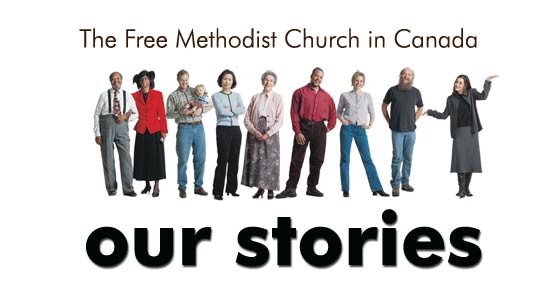Much study has gone into why the Methodist Movement was so successful. Methodism is impressive not only for its rapid global expansion but also for its depth of disciple making. What follows here is a compendium of key features that many feel made the Methodist Movement unique.
APOSTOLIC URGENCY
"Scriptural Christianity, as beginning to exist in individuals; as spreading from one to another; as covering the earth." – John Wesley
Wesley saw the world as his parish. He worked in his parish with sacrificial commitment and powerful effectiveness. He demanded the same of anyone that called one’s self a Methodist. It was this sense of urgency that drove the Methodist movement into every corner of the globe. The Methodist movement was built through its passion for seeing people awakened to Christ, made whole and holy, and then withholding nothing of themselves in spreading that to others.
This Apostlic Urgency permeated all areas of the movement:
It affected the qualifications for leadership
Do they know God? –This may seem like an obvious qualification but many contemporaries of the Methodists, and movements since, have neglected this qualification to their own peril. After all there is a big difference between knowing God and knowing about God. The impossible goal of Methodism was to see the spread of the gospel from person to person, covering the earth. This is primarily a work of passion not just know-how.
Do they have the gifts and graces? – Saint Peter mentioned that possessing the Christian gifts and graces helps us avoid becoming "unproductive in our knowledge of God". Methodist leaders needed to demonstrate that their knowledge of God had fundamentally altered their character and produced a life that looked like Jesus’.
Have they fruit? – "Fruit" for Methodists meant a demonstrated capacity in spreading one’s faith to others. Movements that have neglected this qualification often produce chaplains for people who are already Christians, more often than producing single-minded kingdom builders.
It affected how Methodists defined success
"I began speaking severally to the members of the society, and was well pleased to find so great a number of them much alive to God. One consequence of this, is, that the society is larger than it has been for several years: And no wonder, for where the real power of God is, it naturally spreads wider and wider." – John Wesley
Methodists placed a high value on growth, both numerical and spiritual. The Methodists did not suffer from our modern false dichotomy between the two. Numbers were important. Spiritual depth was important. There was no separating the two in the minds of Methodists. Wesley was known to eject the spiritually lazy and stagnant members of a Society as much as he was known to intervene in Societies where numbers showed a consistent pattern of stagnation or decline.
METHODICAL TRAINING AND ACTION
True to their name, Methodists were "methodical" in their approach to training and deploying people. Their method flowed from Wesley’s theology of Salvation, Justification, and Sanctification (Outler calls this his "Ordu Salutis" or "Order of Salvation" for those of you scoring at home). The method looked something like this:
Awaken People - Most often this was accomplished through open air revival meetings. While Wesley, or one of the other evangelists was preaching, Methodists leaders would wander through the crowd to see who was affected by the message. Those who were being "awakened" were personally invited to a class meeting (a local, lay-led redemptive cell group) usually held that night or within days.
Involve Awakening People in Classes and Bands – classes and bands were focused on helping people work out an understanding of their need for God and begin their pursuit of holiness. Members in good standing and well on the way were then recommended for membership in a Society (usually within 3 months).
Teach and Train Involved People in Societies – Regional groupings of classes were called Societies. Societies focused on teaching people to expect and experience justification.
Deploy Justified People in God’s Ongoing Work of Sanctification – Sanctified people or those that have been "set apart by God" were employed in God’s work. Methodists in this group were expected to submit to leaders, give all they had, save what they needed for survival, and to put their hands to one of the many things Methodists did to improve the lives of others: creating education programs, abolition of slavery, alleviating poverty, etc…
SANCTIFIED PRAGMATISM
"I would inquire, What is the end of all ecclesiastical order? Is it not to bring souls from the power of Satan to God, and to build up in His fear and love. Order, then, is so far valuable as it answers these ends; and if it answers them not, it is worth nothing."
- John Wesley
George Hunter, in his article "John Wesley as Church Growth Strategist" identified Sanctified Pragmatism as a key feature of Methodism. While Methodists gave their energy entirely to the work of God they were also pragmatic in where that energy was spent. Here is the general shape of their decision making process, in Wesley’s own words:
Question: Where should we endeavor to preach the most?
Answer: 1} Where there is the greatest number of quiet and willing hearers.
2} Where there is most fruit....
Question: Ought we not diligently to observe in what places God is pleased at any
time to pour out his Spirit more abundantly?
Answer: We ought; and at that time to send more laborers than usual into that
part of the harvest.
Wesley would not engage in evangelistic preaching where he could not establish a class. "The devil himself desires nothing more than this, that the people of any place should be half awakened and then left to themselves to fall asleep again. Therefore, I determine by the grace of God not to strike one stroke in any place where I cannot follow the blow."
Methodist energy was spent in areas where the people were receptive; they only reaped in ripe fields. However, the concept of "prevenient grace" (the Holy Spirit ripening hearts everywhere and in everyone) meant that there were always ripe fields. Methodists need only find where God was working and then follow it up with workers.
Many books have been written on the success and genius of the Methodist Movement. What I have provided here is a brief description of some of the high points. I find them all personally challenging. If we are going to become full participants in God’s work here in Canada we must rediscover our Apostolic Urgency, Methodical Training and Action, and Sanctified Pragmatism.
Jared Siebert is the Director of Growth Ministries for The Free Methodist Church in Canada
NOTES
For further Reading on this topic may I suggest:
http://wesley.nnu.edu/wesleyan_theology/theojrnl/21-25/21-02.htm
http://wesley.nnu.edu/wesleyan_theology/theojrnl/31-35/31-1-09.htm
Methodism: Empire of the Spirit by David Hempton (recommended by Dan Sheffield)
skip to main |
skip to sidebar


Blog Archive
-
▼
2007
(44)
-
▼
August
(9)
- Honouring Lois Meredith, Missionary to Africa
- Discovering the joy in sharing your faith
- Finding the right funding partner
- Seeing the world through a Wesleyan lens
- Church Development: Methodist Style
- How much do you know about our history? Take the Q...
- Wesley's Third Alternative
- Sanctification is an ongoing process
- Common qualities of Wesleyan Cousins at their best!
-
▼
August
(9)
Links
About The Free Methodist Church in Canada
- Our Ministry Centre is located in
- Mississauga, Ontario, Canada
- The Free Methodist Church is a movement of Christian congregations all across our country that are committed to sharing the good news of faith in Jesus Christ and encouraging believers into a life of ongoing transformation that impacts our families, our communities and our nation.

No comments:
Post a Comment